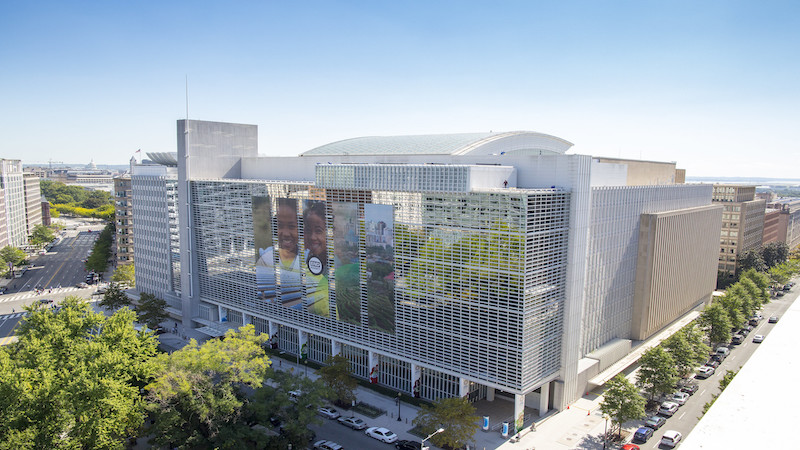At the Global Partnership for Education, we paid a high price to be hosted by the World Bank. A loss and damage fund should be independent
At talks in Abu Dhabi today, the US and EU are pushing for the new loss and damage fund to be hosted by the World Bank.
As a board committee member of a fund hosted by the World Bank, I want to warn them. Being hosted by the World Bank is expensive and it erodes your independence and identity.
I’m the civil society representative on the board of the Global Partnership for Education (GPE), which channels around $5 billion of funding to education projects in low and lower-middle income countries.
The fund has been hosted by the World Bank for about 20 years. For over twelve of those years, there have been recurrent board discussions about moving the fund out of the World Bank and the board will discuss this again next month.
Expensive
The costs of being hosted by the World Bank are one of the most significant concerns. In recent years, the core administrative charge paid to the World Bank for hosting the GPE has been rising.
At one point, the bank charged 12% of the GPE’s income. A few years ago, this went up to 17% and then the bank tried to increase it to 24%. This provoked outrage from the GPE board who negotiated it down to 20.5%.
GPE are told this is an exceptional arrangement and that all other funds hosted by the World Bank are being charged 24%.
Rooftop solar panels offer fragile lifeline to besieged Gazans
If the loss and damage fund was to be hosted by the World Bank and if it was to get the $100 billion a year which developing countries are demanding, then $24 billion of this would go to the World Bank rather than addressing loss and damage.
This figure could go up at any time. Once you agree to be hosted, it seems the World Bank can change the rules and increase the levies.
One of the main reasons the World Bank’s fees are going up is because because of a wider financing crisis in the World Bank owing to the cost of its final salary pension scheme from the 1970s to 1990s.
In effect GPE funds, raised in the name of education, are paying for luxurious retirements for ex World Bank employees who left work before GPE was even created.
These direct costs are exacerbated by other costs. The GPE has to follow the excessive and hierarchical salary structure of the World Bank – with all staff being employees of the World Bank – and effectively having to pledge loyalty to the Bank.
The costs of having the main office in Washington DC are considerably higher than most other locations. The travel, security and insurance costs are also high – with most staff flying business class and staying in five-star hotels.
Not independent
In 2012, an independent review of the GPE’s hosting arrangements raised the problem of having a GPE secretariat serving two masters.
The GPE board is relatively democratic and it should be able to develop its own strategy, policies and procedures. Being hosted by the World Bank limits this.
When the GPE board agreed to expand the staffing of the GPE secretariat, this was directly blocked by the World Bank who had a recruitment freeze in place.
Movement mourns ‘driving force for climate justice’ Saleemul Huq
More broadly, being hosted by the World Bank ‘means operating within the
Read More

